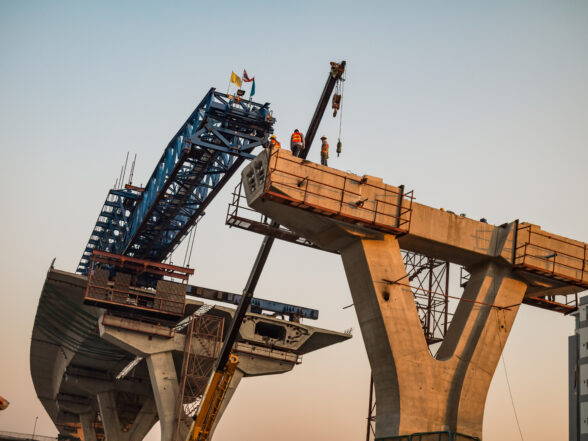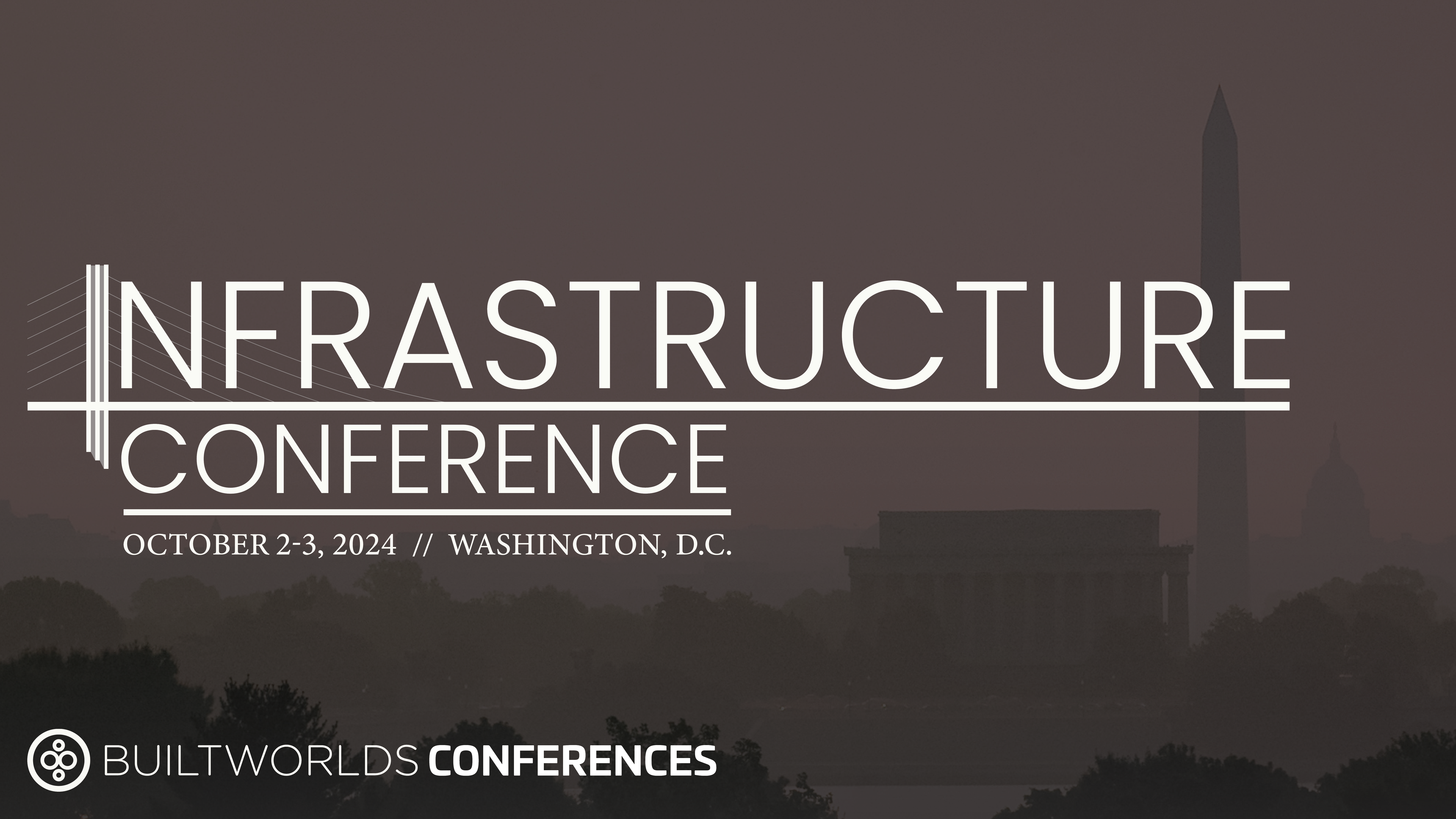In less than two weeks, the BuiltWorlds Infrastructure Conference will kick off in Washington, D.C., the hub of infrastructure progress and innovation in the United States. Key topics such as venture investment in innovation, water infrastructure, sustainable materials, and advanced project management will take center stage. With the backdrop of the Bipartisan Infrastructure Law (BIL), the conference will explore how these areas drive modernization across U.S. infrastructure. From improving transportation networks to leveraging existing infrastructure for future needs, the event will highlight the pivotal role of technology and policy in reshaping construction and sustainability practices in the built environment.
Here are some of the topics being discussed at the conference and how policy influences them:
Venture Investment’s Role in Innovating the Infrastructure Sector
The BIL allocates $550 billion in new spending for infrastructure projects, but venture capital is crucial for fostering private-sector innovation. The law opens doors for venture-backed firms to bring new technologies into areas like smart infrastructure, advanced construction techniques, robotics, and sustainability initiatives. This investment can drive the commercialization of cutting-edge tools, aligning with BIL’s goals of promoting efficiency and innovation. Public-private partnerships and innovation accelerators can leverage venture investments to modernize infrastructure.
Panel spotlight: Intersecting Venture Investment, Innovation, & Infrastructure will explore diverse strategies for capitalizing on this growing emphasis, from identifying profitable opportunities and securing funding to navigating market trends and optimizing returns.
Innovations in Water Infrastructure
The BIL authorizes nearly 10% of committed funding to water initiatives over five years. $7B (12%) of this in competitive grants, and $48B (88%) in formula grants. This denotes a significant reinvestment in America’s aging water infrastructure – much of which is decades old. Water infrastructure-specific priorities include addressing per- and polyfluoroalkyl substances (PFAS) contamination and replacing lead pipes, making it one of the largest federal investments in water infrastructure in history.
Panel spotlight: Innovations in Water will explore practical applications of emerging technologies in water and waste management, highlighting case studies that demonstrate their impact on efficiency and sustainability. This session offers valuable insights for construction companies, tech firms, asset owners, and investors looking to stay ahead in an evolving industry.
Source: furyon | AdobeStockSustainable Materials in Infrastructure Construction
The law emphasizes reducing the carbon footprint of construction projects, including the use of sustainable materials like recycled concrete and asphalt, and incentivizes research into eco-friendly alternatives. This renewed focus creates opportunities for investment in sustainable infrastructure solutions, including the integration of green materials in highways, bridges, and public buildings. Federal procurement policies are increasingly pushing for the use of sustainable materials, and the BIL’s “buy clean” provisions encourage the adoption of low-carbon materials and practices.
Panel spotlight: Materials: Sustainable Alternatives in Infrastructure will focus on the role of sustainable materials in shaping the future of infrastructure, exploring the latest advancements in eco-friendly construction practices. Experts will discuss the challenges and benefits of incorporating sustainable materials into large-scale projects, including their impact on cost, durability, and environmental footprint.
The Transformation of Transportation Infrastructure
With $110 billion earmarked for roads, bridges, and major transportation projects, the BIL represents a significant investment in improving the U.S. transportation network. This includes modernizing public transit, expanding electric vehicle (EV) infrastructure, and making transportation systems more resilient to climate change. The law promotes technologies that enhance mobility, such as autonomous vehicles, EVs, and smart traffic systems. Advanced robotics in construction and the integration of AI into transportation infrastructure development are encouraged as part of the federal agenda to future-proof transportation systems and reduce emissions.
Panel spotlight: Roads, Bridges, Tunnels, and Innovations in How We Move will be an in-depth discussion on the future of transportation and mobility, where industry leaders will share insights into the cutting-edge technologies reshaping our infrastructure. From integrating advanced mobility solutions to improving connectivity and efficiency, this panel will cover the key trends driving change in transportation systems.
Source: hadkhanong | AdobeStockAttend the 2024 Infrastructure Conference
October 1-2, 2024
The National Buildings Museum
Washington, D.C.
Click Here to Learn MoreTopics to be discussed:
- Venture Activity within Infrastructure
- Planning & Design in Infrastructure
- Sustainable Materials Alternatives
- Leveraging Existing Infrastructure
- Data’s Impact on Project Management
- Transportation
- Innovative Water Solutions
- New Power Generation & Transmission
- Maintenance: Roads, Bridges, Tunnels

 Source: furyon | AdobeStock
Source: furyon | AdobeStock
 Source: hadkhanong | AdobeStock
Source: hadkhanong | AdobeStock

Discussion
Be the first to leave a comment.
You must be a member of the BuiltWorlds community to join the discussion.